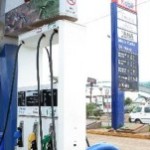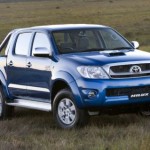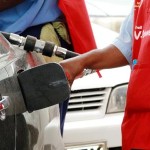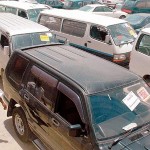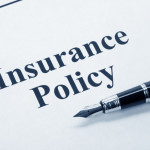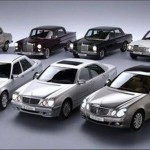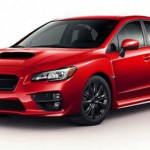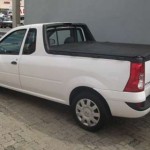Three months ago, when Kenya struck oil, the citizenry received the news with jubilation. Despite a few voices expressing fears that the country could slide into civil strife because of the resource, the dominant sentiment was that it would help stabilise the soaring cost of fuel.
The cost of transport has been rising steeply over the past few years as a consequence of high global oil prices. As a result, transport has become one of the highest expenses for families and businesses.

It is estimated that transport charges consume about 40 per cent of the total cost of services in Kenya. With the perpetual traffic snarl-ups that characterise Kenyan roads, consumers have to dig deeper into their pockets to meet transport costs.
It does not help that the Energy Regulatory Commission, the national authority charged with setting the pump prices, more often than not announces increases.
Some people have even stopped using personal vehicles because of escalating fuel prices.
According to experts, your car should not be a source of financial distress if you bought it with the aim of improving your personal or business life.
Whether you drive a small car or a high-capacity commercial vehicle, experts say that it is possible to squeeze more distance from each litre of fuel. This is news that every driver should welcome, especially in the current tough economic conditions.
According to Mr Joe Mungai, a professional driver and trainer at DT Dobie, it is possible to save up to 30 per cent of fuel costs by just changing some habits on and off the road.
Mr Mungai trains customers — drivers of both and commercial and personal vehicles — in high-efficiency driving and claims astounding results in generating savings.
“You do not require to make any change to your car’s engine. It is just a change in your behaviour as a driver that can end up saving a lot of money,” he said.
Mr Morris Newa, one of his trainees, says, “I have managed to cut my monthly fuel budget by 25 per cent since I went through the training in 2010. It makes you responsible on the road and gives you the a feeling of being in control.
“The trick is simple; stop revving too much, reduce your braking, stay alert, and anticipate but do not compete with other people on the road,” says Mr Newa.
Mr Jesse Muniu said he now spends only half of the fuel he used to use to cover the same distance. “I used to spend about Sh4,000 a week but this has since come down to slightly over Sh2,000,” he said.
According to Mr Mungai, a change in your driving techniques will be reflected in your budget.
Here are some tips that you can apply to cut your car budget through reduced fuel expenses, check the wear and tear of your car, and more importantly, reduce medical expenses as a result of road accidents.
Avoid unnecessary braking
According to Mr Mungai, the more you brake, the faster your brake pads wear out and the more the fuel you use. The start/stop mode of driving keeps interrupting the momentum of your car, meaning that you have to rebuild it anew to get back to a good cruising speed.
If you let go of the accelerator pedal, the car will automatically slow down, but rebuilding the momentum will be easier than when you brake and the car comes to a complete stop.
“For instance, if you are driving at 80 kilometres per hour, the car will have gathered enough momentum to maintain the speed over a long distance by just resting your foot on the accelerator pedal,” Mr Mungai says.
Braking kills the momentum and a lot of fuel is consumed to increase the speed.
According to the trainer, braking frequently wears out your pads faster because they have to absorb more heat. This has a direct impact on the amount of money you spend servicing your car since you have to change the pads every now and then,” says Mr Mungai.
Keep a good driving posture
The posture you take when driving has a direct implication on your efficiency on the road. According to Mr Mungai, a driver should sit in such a position that he can access the pedals, gear shift stick, and steering wheel without straining.
“Sitting in an uncomfortable position weakens your alertness and compromises decision-making, which is an integral part of smooth driving. In some cases, this may result in an accident,” says Mr Mungai.
The posture should also allow the driver to clearly see ahead so as to calculate his moves intelligently. This will guide him on when to let go of the accelerator pedal and when to start slowing down to avoid emergency braking.
Drive with anticipation
Anticipation skills are crucial to smart driving. A good driver should be able to anticipate what might happen next to make informed decisions. According to Mr Mungai, this can be done simply by observing your peers on the road and learning their techniques.
This way, he says, you can make correct decisions on whether to continue pressing the accelerator or start braking.
“Drivers who drive without anticipation are those who will apply emergency brakes several times on one ride to avoid hitting the car in front or a bump. This increases your car expenses through increased fuel consumption and the amount of money going into repairing your car.”
To improve your anticipation on the road, you need to be aware of what is happening around you. You should constantly be scanning the road ahead and checking your side mirrors.
Go easy on the accelerator
However far your destination, you do not have to get to the 100kph mark on your speedometer in just 50 metres. Cost-efficient driving requires that you allow the car to build momentum without pushing too hard on the accelerator pedal.
According to Mr Mungai, you can build up to a high speed and save fuel by gently pressing the pedal.
If you are driving a manual car, you need to know when to engage which gear according to the anticipated speed.
“If you are speeding in a slow gear, you end up using a lot more fuel than a person who is driving at the same speed but in a faster gear,” says Mr Mungai.
For an automatic car, a gradual increase allows the computer to change the gears easily, which enhances fuel consumption efficiency.
Switch off the engine in traffic jams
A running engine consumes fuel even when the car is not in motion. If you are caught up in one of Nairobi’s many rush hour traffic jams, idling the engine or completely switching it off will save you a significant amount of fuel.
“Sometimes you may spend many hours in the same position or just move 10 metres. Instead of keeping the engine running all this while, switching it off will save you a reasonable amount of fuel and give your car a deserved rest,” says Mr Mungai.
Maintain a good following distance
A good distance between your car and the one ahead is important because it allows you time to think and make sound decisions.
“When you see the brake light of the car in front of you, it is a sign that you should slow down. This allows time to let the car to reduce speed without using the brakes. Ideally, you should only use your brakes to stop the car, not to slow it down. But this is only possible if the decision is made in good time,” says Mr Mungai.
Service your car on time
Many car owners have the habit of postponing taking their car for service in the name of attending to more urgent needs. According to Mr Mungai, this may end up increasing your fuel budget. “Not servicing your car in time decreases the engine’s efficiency, which may reflect in increased fuel consumption. The best thing is to make sure your car is serviced at the right time. This will also reduce chances of an accident.”
Copyright © Daily Nation

